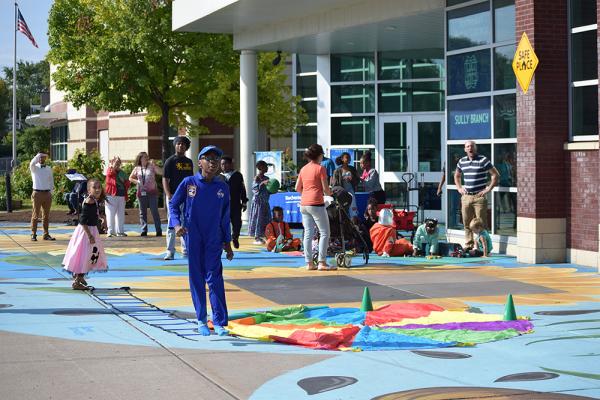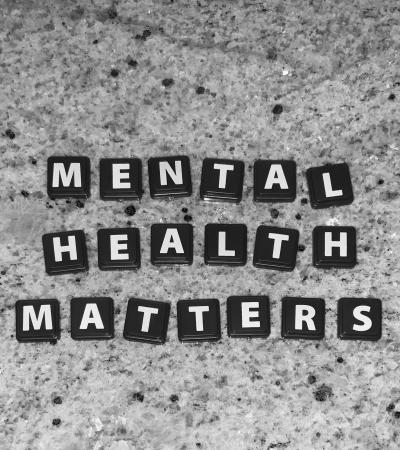In normal times and during a health crisis, coalitions of community organizations can accomplish much more than individual organizations ever could alone. Libraries, with their strategic position in the community, can be on the front lines of those efforts.
How can we bring innovative, impactful programs to our libraries by joining the health coalitions popping up across the country? The answer lies in partnerships that span different types of organizations, each with different expertise and strengths. “Strong partnerships spanning an array of sectors are the bedrocks of healthy communities,” says the Robert Wood Johnson Foundation in a report on the evolution of multi-sector health partnerships.
This month we’ll consider what these coalitions look like, how you can get involved and what you can do through them, using examples from across the country.

Tackling obesity in Clinton County, Ky.
Located on the border with Tennessee on the edge of Daniel Boone National Forest, Clinton County has a median household income of $19,563, and about a quarter of the county lives below the poverty line. With funding from the Centers for Disease Control and Prevention, a group based out of the University of Kentucky Extension sought to create a multi-sectoral coalition to address obesity, an endemic issue in this and many other high-poverty, isolated rural communities.
The Clinton County Public Library was at the table from the beginning. Christy Nuetzman, the Clinton County family and consumer sciences agent for the University of Kentucky Extension, said the library has been “a vested partner in our coalition.”
The library and other participating businesses and agencies work together to offer fun physical activities and family enrichment. "We encourage families to walk a path together to not only be active but to talk and spend time together while they learn to do new things and participate in activities,” Nuetzman said. The activities typically focus on books and literacy, which is a great way for libraries to add their expertise to multi-sectoral coalitions. Nuetzman makes sure to schedule coalition events on evenings when the library stays open late.
The library also helps with StoryWalk programs organized by the coalition; library staff helps identify the book, and other partners provide funding so kids can take a book home afterwards. The library also brings its bookmobile to coalition programs to make sure local kids can exercise their brains and their bodies. And the library is a key player in the Longest Day of Play program, which features a lineup of physical activities and free breakfast at the library.
Common Ground Health in Rochester, N.Y.
Meanwhile, in Rochester, N.Y., the library has found a program partner with Common Ground Health, “the region’s health roundtable” that brings together leaders from health care, business and education to find common ground on health challenges. It also brings public libraries to the table.
Patricia Uttaro, director of the Monroe County Library System & Rochester Public Library (RPL), says the “secret sauce" of this partnership has been collective impact. Common Ground Health and the library share the same goal: providing the best possible programs, services and resources to community members so they can live their best lives.
Library staff connected to Common Ground Health and its Healthi Kids initiative through shared participation at various local tables concerned with education, health and poverty. "Once those connections were made, it was the people that made the magic happen,” Uttaro said. Healthi Kids staff have been the driving force behind playful installations at the Central and branch libraries, and more libraries are now participating in the mobile meals program thanks to the organization's nutrition work.
Recently, the organizations partnered to create a Play Walk, a kid-friendly trail that connects the main library and the Strong Museum of Play. The walk was designed at the public library by a youth design team that worked with local artists and the broader coalition to embed active play into the city of Rochester’s built environment. CGH has also worked with the library on Story Walk programs, safe routes to libraries and more.
Participating with Common Ground Health has not only led to increased programming both inside and outside the library; it has also inspired the library to embed this work more strategically into its administration. RPL increased staff participation in community initiatives when they launched a new strategic plan in 2016, Uttaro says. Since then, the library has added new partnerships, working with a local food cooperative on free produce distribution and with a local bike shop to teach people how to repair bicycles.
"The RPL tagline is ‘More Than You Think,’ which has helped us connect with multiple community partners," Uttaro said. "Getting staff into the community has only strengthened the role of libraries in the city of Rochester.”
The Rochester Public Library's participation in Common Ground Health continues during the COVID-19 pandemic. The public library is currently working with the city's Department of Recreation and Youth Services, WXXI (a local PBS affiliate), and Common Ground Health to enhance interactive StoryWalks at parks across Monroe County, which remain open for exercise.
Looking for other ideas?
Once libraries get involved in multi-sectoral coalitions, things tend to snowball. Two examples of this snowballing effect were shared at the Public Library Association's 2020 Conference.
Elaine Betting, director of community engagement at Ohio’s Lorain Public Library System, shared how the library teamed up with the health department to offer them space at the library for their free yoga classes, a partnership that led to an explosion of health programming co-developed by the library and partners. (The PLA presentation slides are online.)
And in a session called "Suicide and Overdose Prevention at the Library” Leslie Schow of Utah’s Salt Lake County Library shared the following advice to librarians wanting to make a difference on these issues: "Recruit your local healthy communities group. And if you don't have one, start one."
Join multisectoral coalitions for the programming opportunities. Stay to transform your library and your community for the better.
Are there similar groups in your communities? How have you worked with them? If none exists, take a page from the Salt Lake County Library playbook and start one at your library (they’ve done just that in Marion, Iowa,). Let us know how things go!



